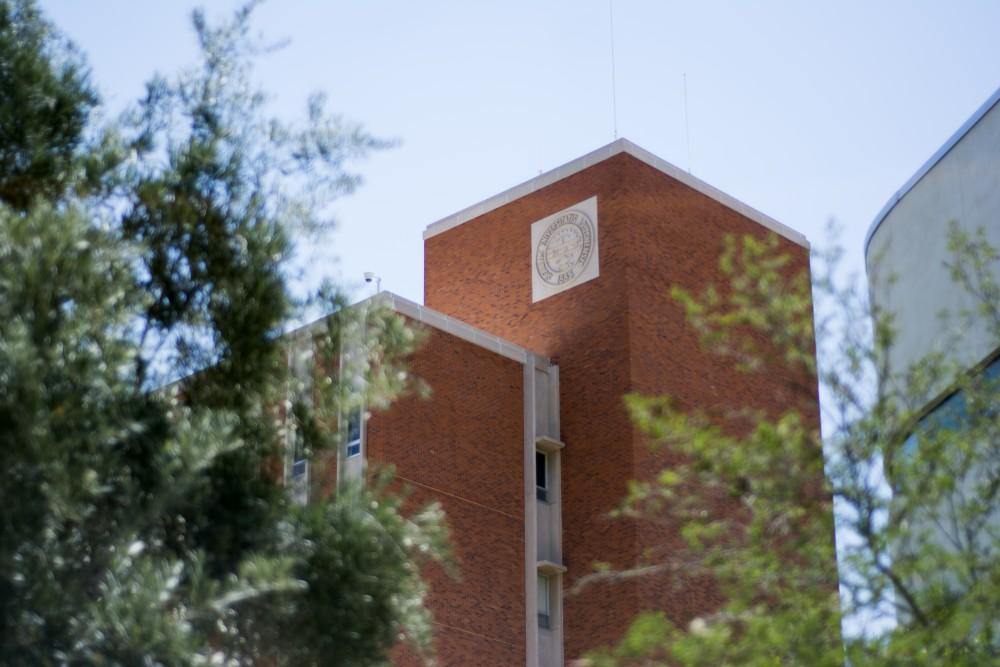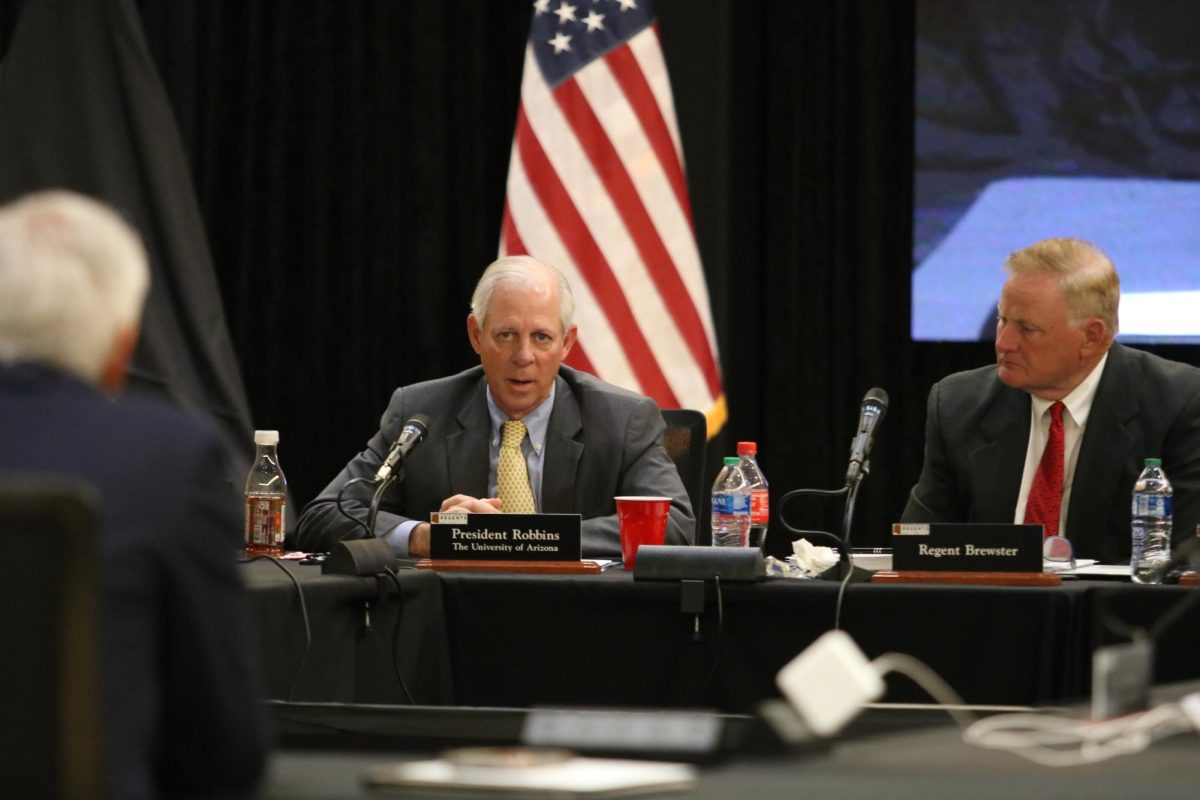The reorganization of budget management, a change in senior leadership and the revision of financial aid programs are just some of the ways leaders at the University of Arizona are responding to an ongoing financial crisis.
Following a meeting with the Arizona Board of Regents, President Dr. Robert C. Robbins released a statement Wednesday detailing how the UA will deal with the current financial crisis.
In this statement, Robbins announced a financial recovery plan that the UA has submitted to Gov. Katie Hobbs and the Arizona Board of Regents. Some of the measures in this plan are eliminating tuition guarantees starting in 2025 and “recalibrating” merit-based scholarships for non-residents in the next 18 months.
At Wednesday’s ABOR meeting, Robbins also announced the resignation of UA Chief Financial Officer Lisa Rulney. ABOR Executive Director John Arnold will serve as the university’s CFO and senior vice president in the interim.
These major changes come after the UA discovered they had undertaken a $240 million budget deficit. After the original loss was presented to ABOR, many feared this financial “crisis” would mean cuts to scholarship funds, instructor salaries and possibly athletics.
“We will take a hard look at merit aid for nonresident students and likely reduce that down,” Robbins said at Wednesday’s ABOR meeting. “We’re going to end the tuition guarantee program for students starting in the fall of 2025.”
Robbins also clarified that tuition and merit-based scholarship changes would not affect in-state students.
“I cannot state this strongly enough. We support the Promise Program and we will continue to provide that support,” Robbins said.
The Arizona Promise Program is in place to provide financial assistance to Arizona students whose federal Pell Grants and any other scholarship do not fully cover the cost of college.
These aid-related changes, while not felt immediately by the current student body at UA, will likely affect future students and their ability to pay for and afford schooling.
Along with the change in tuition and scholarships, leadership at the UA plans to freeze international travel for senior administrators and defer capital projects. There are also plans in the next 18 months to eliminate the 2025 salary increase program (delaying salary increases and pay structure changes) and slowly reorganize the current budget model used at UA to avoid future problems.
The Arizona Board of Regents also passed an action plan to deal with the financial structures of the UA, ASU and NAU, which ABOR Executive Director John Arnold proposed. Four steps were included in this action plan:
Step 1: Additional financial management policies, such as university-wide budgeting processes and centralized management.
Step 2: Additional financial reporting — a monthly and mid-year financial report that compares revenue and expenditures versus the prior year and historical spending patterns.
Step 3: Enhanced quality assurance of a university financial report. This will be a peer-review process which will include representatives from the two other universities and a few members of the Board of Regents, who will assess the quality of the university financial structure and whether principles are being executed properly. Arnold also proposed an annual summit of Board of Regents members, CFOs from the three universities and other financial executives to discuss shared issues.
Step 4: A UA-specific reporting structure over the next few years as the UA centralizes a specific budgeting structure.
At Wednesday’s ABOR meeting, Arnold mentioned feeling strongly about the steps and action plan getting implemented quickly.
“I think we can have some of the reporting structure available for this spring […]. We’ll get the first round of peer reviews done over the next 12 months,” Arnold said.
The UA is launching a new approach to budget management to address its financial crisis. While current UA students might experience only minor adjustments, incoming students may need to explore alternative methods for securing scholarships to meet the university’s costs.
Follow the Daily Wildcat on Instagram and Twitter/X















